Six most common cycling fears and how to overcome them
Sports psychologist Dr Josephine Perry explains how to put cycling fears back in their box


Cycling is pitched as a cheap way to commute to work, an efficient amble into nature, an excellent path to fitness and an exhilarating way to get your competitive juices flowing. The adverts show intense or smiley faces, loving the freedom cycling gives, sucking up the effort. But what we rarely see depicted or hear spoken about is the fear. It is there, lurking in the background – and none of us are immune.
Pros and amateurs alike are all, at some point in their riding lives, seized by the ‘fight, flight or freeze’ response. Once we are honest with ourselves about our fears, we become more open to learning how to override them. Here we aim to do just that, tackle the six most common fear-inducing situations.
Afraid of fast descents
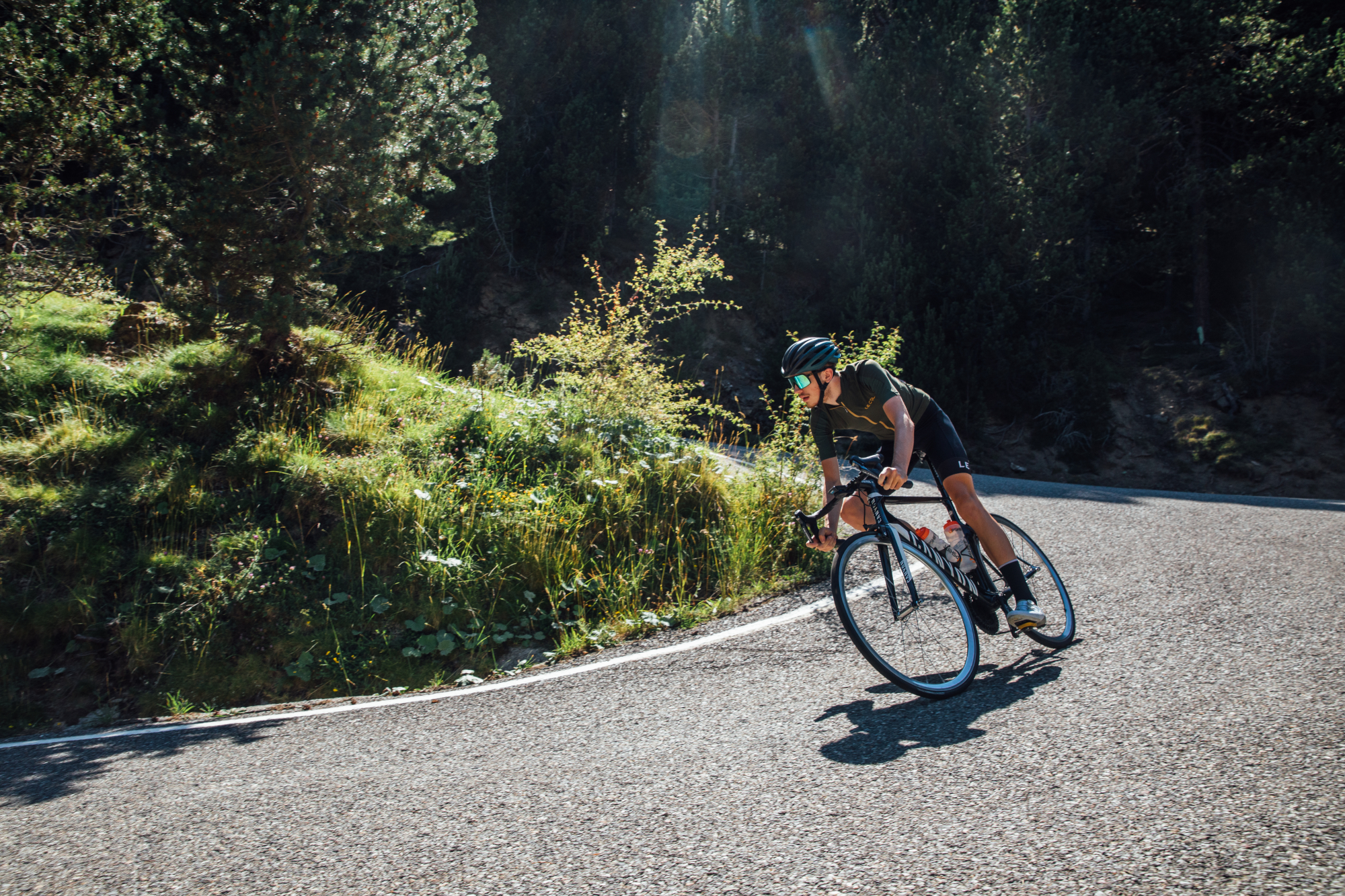
Causes of this fear: Our brain is designed to look out for threat. It has a special part called the amygdala (you might have heard it referred to as your inner chimp), which keeps us alert and jumps into action whenever we are in a risky situation.
Descending fast downhill is one of those situations – no surprise that our chimp starts gnashing its teeth. The amygdala sets off a chain reaction, flooding the body with cortisol and adrenaline, making us hyper-alert. The problem is that that alertness makes our focus extremely narrow, so we only see a little of what is ahead. It can block out a lot of our peripheral vision and tighten our muscles – not great when staying relaxed and finding a rhythm is so key to being safe and fast.
It happened to me: Emily Barrow rides with Velosport CC, Putney. She first started riding in 2015. “My biggest fear has always been descending, particularly anything steep or featuring hairpins,” she explains. “There was a point where I couldn’t stop on a descent and someone had to literally catch me. I would silently sob with fear and use the brakes so much I feared a blowout!”
Barrow knew this fear was limiting her potential and realised she needed help. “I had tried looking at descending advice videos online, which helped a little. I also found that it helped if I could anticipate the road coming up, descending with the map up on my cycling computer. A big turning point was going on a training camp in Tenerife with Polka Dot Cycling. Our rides were guided, with a minimum of two guides per group and there was a focus on technique. I was watched in all aspects of my cycling and even videoed ascending and descending.
“They gave excellent advice on braking, position on the road, position on the bike and bike handling. It improved my confidence no end.”
Get The Leadout Newsletter
The latest race content, interviews, features, reviews and expert buying guides, direct to your inbox!
How to override it: Like Barrow did, you need to face the fear and ask those who are confidently doing what scares you for help and advice. “The knowledge I gained from experienced cyclists was invaluable. It was great to be able to apply that practically within a week of cycling, gain immediate feedback and continue to work on it,” said Barrow.
When you have the knowledge and security that you can do it safely, the threat centre in your brain switches off, so you remain in control and enjoy the exhilaration.
Scared of crashing again
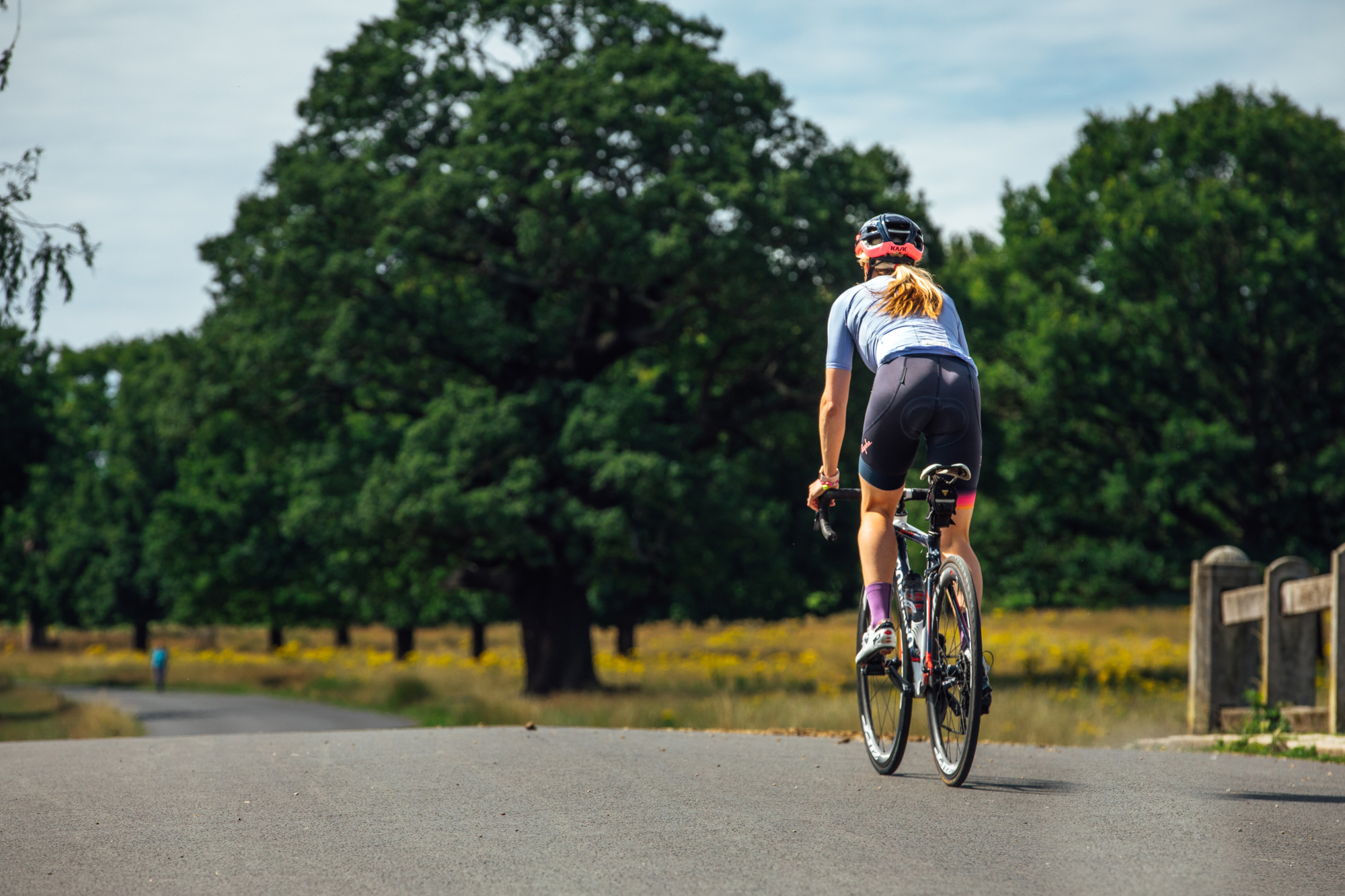
Causes of this fear: We are back to that pesky amygdala. This time, it has a reason to be signalling a risk. If last time you went riding, you got hurt, then its job is to protect you from further harm. If you get sweaty hands, a feeling of dread in your stomach, a racing heart rate and faster breathing, your amygdala is telling you not to get back on that bike.
It happened to me: Around seventeen years ago, Rob Anderson, 51, a member of the Gorilla Coffee Cycling Club in Kings Heath, Birmingham, was driven into by a car while he was riding in a cycle lane.
He suffered concussion, nerve damage to his neck and shoulder and lost a tooth. It took a few months for the physical recovery, but far longer for the psychological one. It was over a year before he could even think about getting back on his bike.
"As part of the work to assess damages from the accident, I was referred to a psychologist,” says Anderson. “They were really good in helping me to work through what had happened and start to rationalise my concerns."
Even so, he still feared being hit, so it was suggested he see a cycling coach. The first session took place in the grounds of a school, so it was free from traffic. "For most of that first session, it felt like we were doing more chatting than cycling, but, over the course of that hour, I had gone from being in a cold sweat when sitting on my bike, to feeling happy pedalling around a coned course and going through a figure-of-eight."
He spent a couple of weekends working with the coach, before finally venturing out onto a road. “After that, I felt confident enough to take things forward myself. Within a few more weeks, I was back commuting by bike every day.”
Anderson has since qualified as a British Cycling Ride Leader and leads his club’s Sunday social rides, cycling over 150 miles a week.
How to override it: Anderson’s approach was spot-on. He found people to work with to get the support required – to listen to him and to help him build his confidence through practical skills.
“Seeing a psychologist helped me understand and rationalise the situation and my fears; the cycle coaching gave me the support and confidence to manage them,” concluded Anderson.
Fear of failure
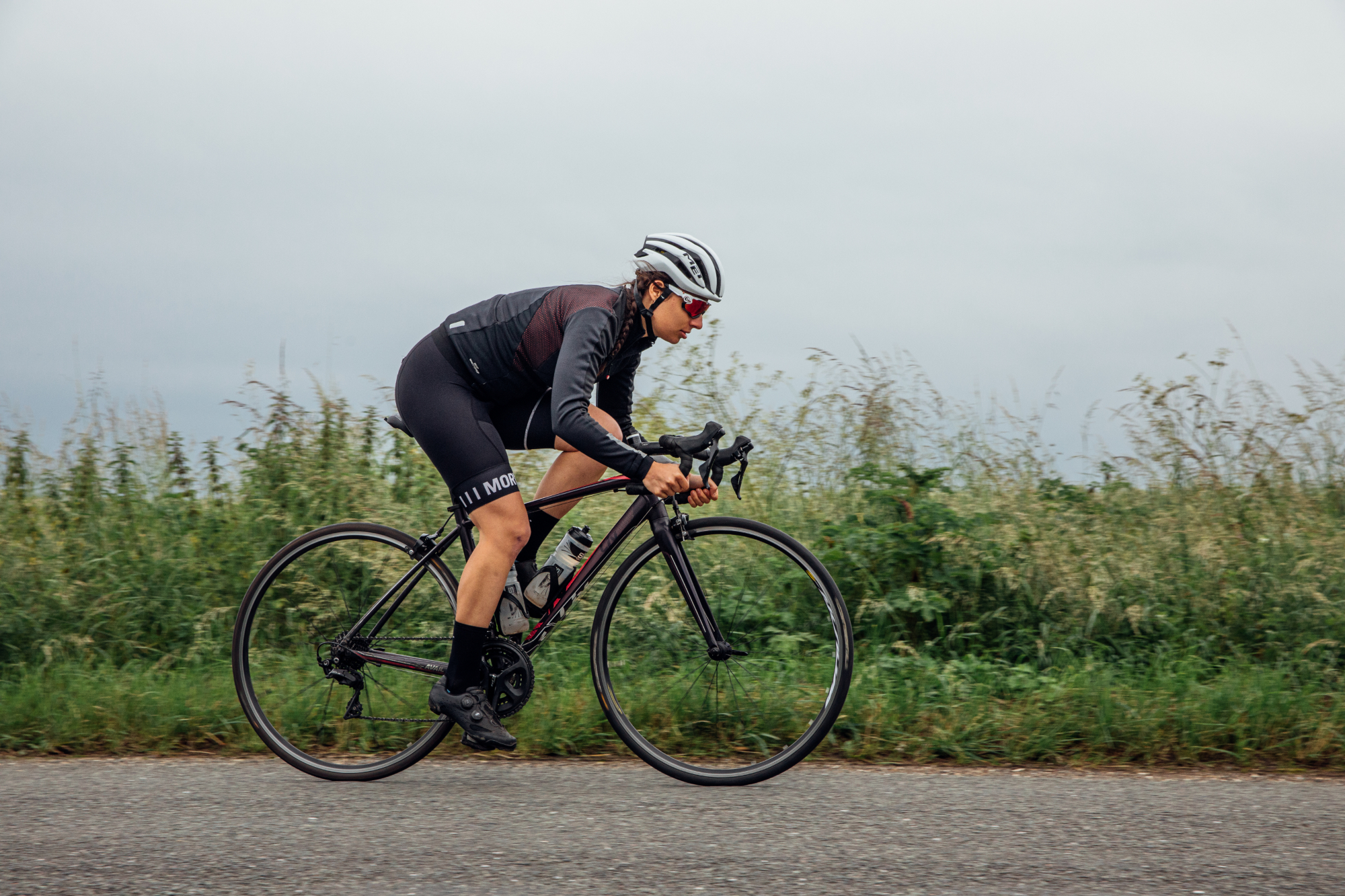
Causes of this fear: Who wants to look like a muppet in front of rivals and supporters? Whether it's completing your first 100-mile ride or first gravel bike event, or hitting sub-5 minutes on your local Strava KOM, who wants to tell everyone their big, fat scary goals and have them fall apart in front of their own eyes? Our amygdala doesn’t just want to keep us physically safe, but is also keen to keep our self-esteem safe. And when it senses that we might fail at something, it goes all out to protect us. Often, this is through self-sabotage, where we purposely (but not always consciously) fail at a few small things, so it gives us a decent excuse as to why the big goal hasn’t gone to plan.
How to override it: Don’t stop being ambitious and exploring your limits, i.e. keep the big scary goal in place, but be economical with the truth when talking about your plans. Much of our fear of failure comes from worrying about how others might judge us – usually unfounded – because, usually, no one is paying attention. But if you don’t tell anyone, then they definitely can’t judge – it takes off some of that pressure.
Can’t pluck up the confidence to race
Causes of this fear: Racing is a huge threat to our self-esteem. If we enter a race and screw up, there is a risk to our pride. Looking from the outside in, racing can seem incredibly intimidating. It can seem full of rules, codes and clubs that you can only learn when already involved. It can feel far safer to stay away.
It happened to me: Jess Fawcett has now raced for the Jam Cycling Race Team but, when she started riding seven years ago, she was certain that her cycling would be non-competitive. “I was happy to roll along in a social group but, as soon as I found myself embroiled in some kind of fast bunch situation, my brain went into panic and the fun faded away.”
One of the riders who she did morning laps with finally persuaded Fawcett to try her first race and even helped her get a licence sorted out.
“We went to the race together and she pretty much held my hand right to the start line. The race went awfully. We ended up setting off just a few seconds before a men’s race; I got dropped on the first bend, and the fear of the men’s bunch swallowing me up on the course was too much – so I dropped out.”
A volunteer shared her similar experience with Fawcett, highlighting how she was now a cat-one racer. The pep talk worked, and she tried again – this time finishing.
For future races, Fawcett got extra confidence from pre-race training. “Coach Watto [Ian Watson from Cycle Team LDN] would come along half an hour before certain races; he’d take the group around the course, making us practise through-and-off and riding shoulder to shoulder.”
How to override it: Admit your fears and ask friends or experts to mentally ‘hold your hand’. Part of the fear is that what lies ahead is all so unknown. Feeling like you are not alone and that you have someone who can let you in on exactly what to do will help you feel more confident.
“Find someone who is happy to talk you through everything and, ideally, go with you,” Fawcett says. “Just having someone there who knows what’s going on and how it all works really helps.”
Fear of bunch riding
Causes of this fear: The biggest fear most of us have with group riding is causing a pile-up and hurting others. There is a real skill to riding in a bunch, and to learn it you need to understand the technique, science and etiquette.
You don’t want to go too hard at the front and be wiped out for the rest of the ride, or go too slow at the front and annoy everyone. Equally, you don’t want to sit in for too long and get labelled lazy or get too close and touch wheels. Everyone in a club knows who they feel comfortable riding with and, if your name isn’t on that list, it can feel pretty lonely.
How to override it: Figuring out bunch riding is all about admitting you need to learn. Most club rides will have someone who is only too keen to share their knowledge and wisdom.
Ask them for advice and they’ll willingly take you under their wing until the secrets of the bunch have become second nature.
Worried about getting ill
Causes of this fear: We have been living through some strange times in the last couple of years. We might have got pretty good at working out how to stay fit and healthy prior to 2020, and then along came Covid-19, which changed our entire way of thinking. Hand-washing can get obsessive, or you catch yourself panicking after simply touching a bench. A lot of us are still checking constantly for a cough, wheeziness or a temperature. It’s completely understandable. That threat section of our brain has been primed by the media and the government to switch on. They even gave us great big posters telling us to ‘Stay Alert’ – the worst trigger for someone with health anxiety.
How to override it: The coronavirus has been a masterclass in too much news and too many competing ‘truths’. The way to overcome a fear like this is to do your own research, sticking to the facts relevant to you. What do the stats for someone in your position (age, health status, etc) actually suggest? What is the real likelihood of you catching it? What is the likelihood of you surviving it? What can you do to reduce the risk? And then compare that to other risks. Putting this in context can help us see whether it is worth our worry.

Thank you for reading 20 articles this month* Join now for unlimited access
Enjoy your first month for just £1 / $1 / €1
*Read 5 free articles per month without a subscription

Join now for unlimited access
Try first month for just £1 / $1 / €1
Dr Josephine Perry is a Chartered Sport and Exercise Psychologist whose purpose is to help people discover the metrics which matter most to them so they are able to accomplish more than they had previously believed possible. She integrates expertise in sport psychology and communications to support athletes, stage performers and business leaders to develop the approaches, mental skills and strategies which will help them achieve their ambitions. Josephine has written five books including Performing Under Pressure, The 10 Pillars of Success and I Can: The Teenage Athlete’s Guide to Mental Fitness. For Cycling Weekly she tends to write about the psychological side of training and racing and how to manage mental health issues which may prevent brilliant performance. At last count she owned eight bikes and so is a passionate advocate of the idea that the ideal number of bikes to own is N+1.
-
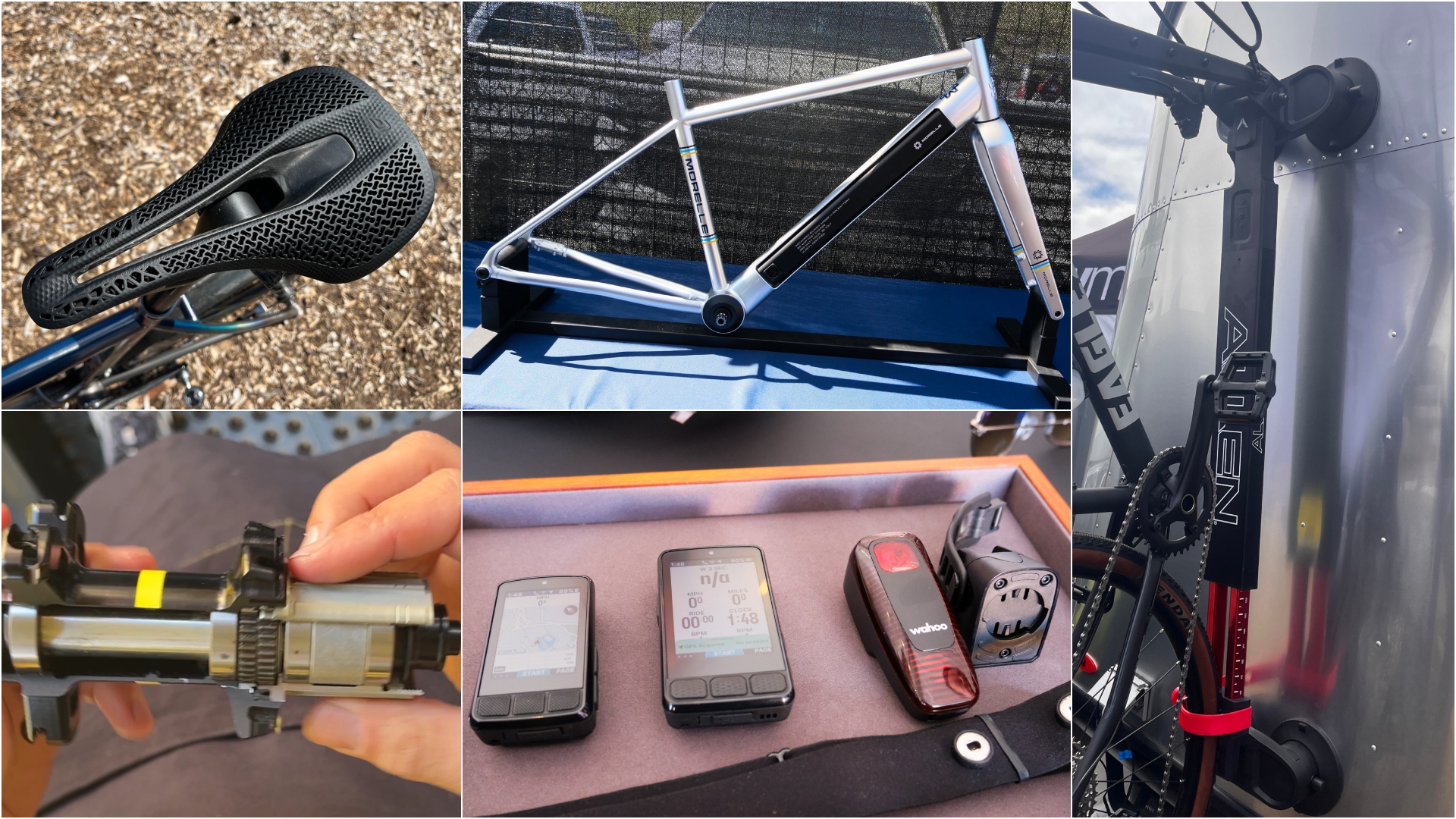 A bike rack with an app? Wahoo’s latest, and a hub silencer – Sea Otter Classic tech highlights, Part 2
A bike rack with an app? Wahoo’s latest, and a hub silencer – Sea Otter Classic tech highlights, Part 2A few standout pieces of gear from North America's biggest bike gathering
By Anne-Marije Rook
-
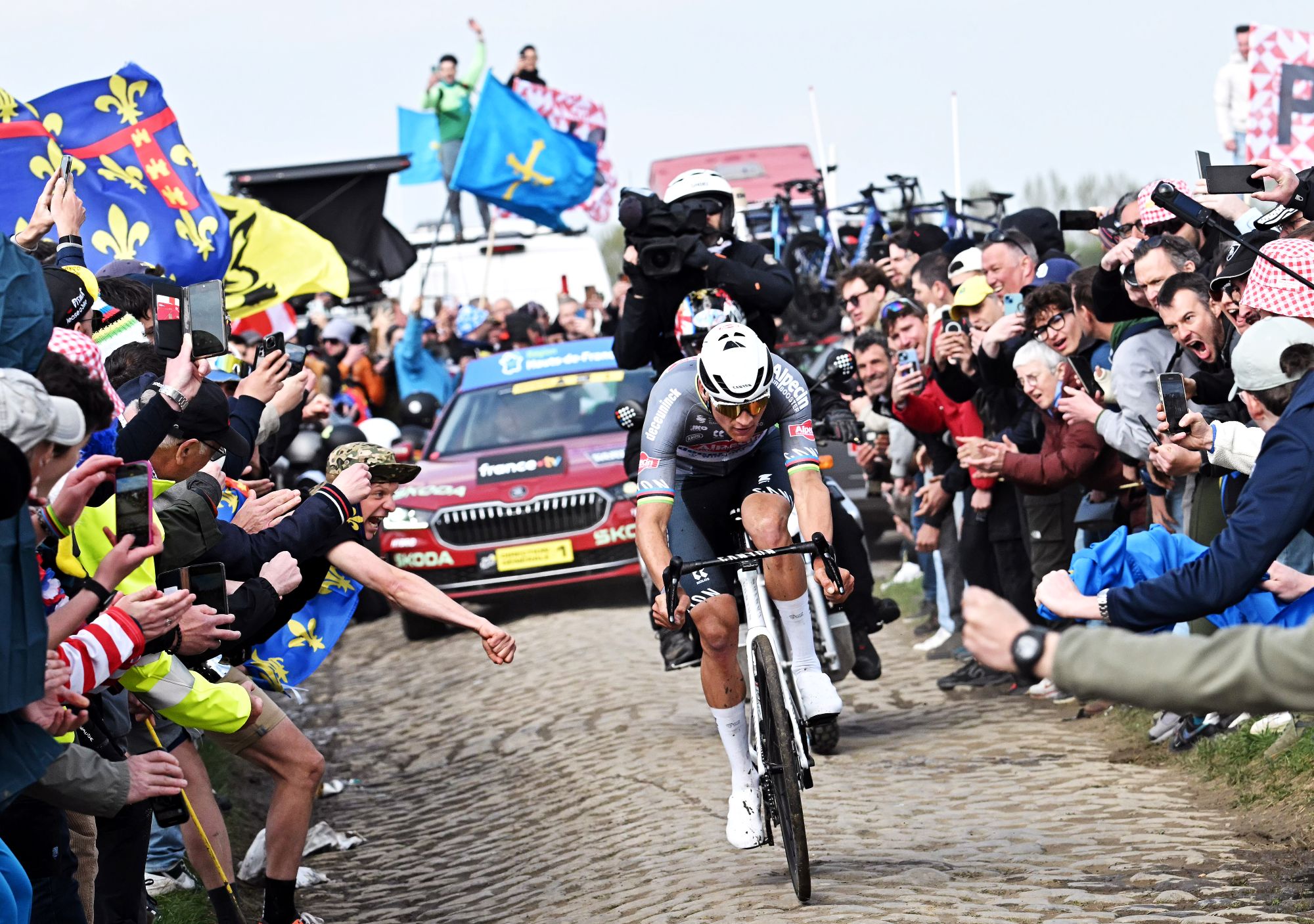 Cycling's riders need more protection from mindless 'fans' at races to avoid another Mathieu van der Poel Paris-Roubaix bottle incident
Cycling's riders need more protection from mindless 'fans' at races to avoid another Mathieu van der Poel Paris-Roubaix bottle incidentCycling's authorities must do everything within their power to prevent spectators from assaulting riders
By Tom Thewlis